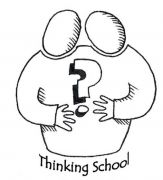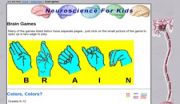Thinking Skills
 THINKING SCHOOL STATUS
THINKING SCHOOL STATUS
We are an accredited Thinking School from Exeter University
See our latest article (June 2020) produced and shared by Thinking Matters on our Friday Reflections which encourages children to develop and reflect on their emotions using various tools to help them.
Thinking-Skills/Edgeware-Reflections.pdf
Vision and School Statement
We believe in lifelong learning and the notion that learning should be enjoyable. We put a very large emphasis on developing thinking. Through our teaching, we equip children with the skills, knowledge and understanding necessary to make informed choices in their life. We believe in making children critical thinkers and independent learners. We believe that learning should be 'Learning Centred', meaning that each element of whole school and classroom practice is designed with an understanding of how children learn best at its heart.
We would like thinking to be at the heart of our curriculum.
Headteacher's Statement
I have a strong belief that a school is responsible not only for providing a good education but also for developing the 'whole child'. It is key that children are keen learners and critical thinkers who have the confidence and skills to ask questions and find answers independently. It is imperative that children are provided with rich opportunities through an engaging curriculum and have opportunities to work cooperatively. The introduction of Thinking Schools has allowed children at Edgware to love learning and enjoy challenge- they are 'learning to learn'. Through high expectations, a consistent approach, active learning and a focus on meeting individual needs, children have been able to make consistently good or better progress and attainment is rising year on year. After many years of embedding thinking skills across the school, staff and pupils now have solid strategies and tools which develop a higher level of thinking and encourage higher levels of engagement, and challenge in every class.
Cognitive Education Coordinator's Statement
Definition of a thinking school
“An educational community in which all members share a common commitment to giving regular careful thought to everything that takes place. This involves both students and staff learning how to think reflectively, critically and creatively, and employing these skills and techniques in the co-construction of a meaningful curriculum and associated activities. Successful outcomes are reflected in students across a wide range of abilities, demonstrating independent and co-operative learning skills, high levels of achievement and both enjoyment and satisfaction in learning. Benefits will be shown in ways in which all members of the community interact with and show consideration for each other and in the positive psychological well-being of both students and staff”
Burden, 2006.
Why become a thinking school?
Since the school opened in 2014, due to the closure of a failing Junior school- put into special measures, there has been a drive to raise standards, improve behaviour, raise expectations and embed good practice. Before Edgware Primary was opened, children were failing. Behaviour was badly managed, learning behaviours poor and quality of teaching needed vast improvement. The previous ofsted report clearly stated that children's needs were not being met, there was no challenge and attainment need to rise.
ofsted report 7th Nov 2013.
"Achievement is inadequate. Pupils’ attainment is persistently low in reading, writing and mathematics, and they are not making enough progress from their starting points."
"Teaching is not ensuring that pupils, including disabled pupils and those with special educational needs, make enough progress and are prepared well for the next stage of education."
"Teachers have low expectations for what pupils should achieve, including the most able. They do not make sure that work is adjusted to provide the right level of challenge for pupils of all abilities."
"Pupils’ behaviour requires improvement because they are not always attentive in lessons"
"Teaching is not good enough because there is too much that requires improvement or is inadequate."
https://reports.ofsted.gov.uk/inspection-reports/find-inspection-report/provider/ELS/101276A clear strategy for improvement was put in place with Thinking Schools at its heart.
Educational research has shown that when pupils understand how they think and learn they become more resilient and adaptable and make greater progress. At Edgware, we are passionate about learning and are committed to providing our children with skills to become lifelong learners. Over a number of years, we have encouraged our staff and pupils to work with a growth mindset, develop resilience and have a positive attitude towards everything they do. We have worked hard to improve standards and behaviour and ensure that every child succeeds. We have therefore worked extremely hard to develop a whole-school approach.
Our dedicated Drive Team, has introduced and promoted the use of thinking skills and strategies across the school. The team have provided opportunities for staff to receive high quality training opportunities which have taught them how to introduce methods into the curriculum for teaching the skills of thinking and associated cognitive and meta-cognitive strategies. The Drive Team have also encouraged key stakeholders (including parents, carers and school governors) to play an active and supportive role in developing a “thinking” culture.
We believe that: Metacognition + Oracy + Self Regulation = Self Regulated Learner
What makes Edgware Primary a Thinking School?
We decided to become a Thinking School as we strongly believe that all children, independent of gender, deprivation, ethnicity and cultural background must have access to learning at higher levels. This is also applied to the whole community and all our stakeholders. We have 85% of EAL families and 32% of Pupil Premium Pupils and many parents who may not have had a successful education and we therefore are driven to help everyone access education and learning and become independent, resilient learners for now and the future. We would like to provide better life chances for all.
As we are living in a time of technological development, we believe in teaching skilful thinking and problem solving and do not believe that teacher led/ teacher talk is good enough for our children to be challenged. We want our children to be ready for the future no matter what that may look like.
Our pupils are encouraged to think in a variety of ways which will encourage and inspire thoughtful learning and a ‘can do’ attitude. We have successfully developed a common thinking language across the school which is used by all members of our school community. We would like children to be conscious of their thinking and we must be mindful to see what impact our teaching has on the learner? Can we help children to think outside the box, be resilient and overcome barriers to learning? We want children to find solutions to problems and facilitate and develop open minded thinking. This starts as early as our Nursery.
To do this, we provide regular opportunities for our staff to discuss the process of cognitive education and look at ways to maintain, embed and improve what we are doing so that we have the most impact. We also ensure that we are well informed by reading the TSI’s newsletter and other key articles in Education (see below in 'Extra Reading' one or two articles we have read) . The newsletters provide us with important news and updates from schools and educational organisations from thinking networks across the world and also give us the most up-to-date thinking. We continually read the latest thinkers sothat we continue to learn and to reflect and improve our practice.
Following an initial drive team meeting with a Thinking School consultant, and after discussions as a team, we decided that we wanted to use the following tools: Thinking maps, Growth Mindset, Habits of Mind and Blooms as our main tools to improve children thinking and learning. We identified these to be manageable, effective and suitable for the needs of the school community.
We are guided by and believe in the three main principles of thinking schools and this has helped to structure and drive improvement and embed good practice across the school:
Principle 1: Innate Thinking
All learners have the innate ability to think and improve their thinking.
Principle 2: Thinking Transfer
All learners need to transfer and connect thinking processes & dispositions to secure deep learning.
Principle 3: Pupil Centred Models
Improving thinking and learning are effective when pupil centred models are explicitly implemented across whole schools.
Governing Body Statement
Due to the amalgamation of a failing Junior school and 'Good infant school in September 2014, the Governing body has worked closely with the Head to drive improvement. We wanted to ensure that every child at Edgware Primary succeeds and that not only standards improve but that there is a child centred approach which develops independence, resilience and growth mind-set which in turn prepares the children for life.
The Governing Body have made a full committment to the Thinking Schools Process.
The Governing Body are delighted to see how successful the implementation of Thinking Schools has developed and the impact it has had over the last four years. We were extremely impressed that during a recent Governors’ Day visit (see video clip), the children and staff were very confident in talking about different types of thinking and how the various strategies/tools that have been introduced over a period of a few years have developed quality teaching, learning and improved outcomes.
We are committed to continuing to develop thinking at Edgware and to share good practice with others.
Drive Team’s Statement
The Drive team is made up of a number of staff who hold various responsibilities at Edgware including subject leaders, Assistant Heads, Deputy Head and Headteacher. There main goal is focused on implementing and embedding thinking to ensure improvement in all areas of learning and behaviour. They meet regularly to discuss ideas and evaluate the impact and effectiveness thinking schools is having. These staff are regularly involved in team teaching, supporting planning, delivering training and supporting groups or individual pupils.
Children are encouraged to understand that they play an important part in their own learning. To help them with their learning, we use:
- Thinking Maps
- Habits of Mind
- Growth Mindset - these links below will help parents understand what it means to have a growth mindset and how you can help your child develop this at home.
- Daily recaps to support cognitive load and retention
- Restorative Justice
- Self-regulation strategies
- Philosophy 4 children - the 4Cs.
Useful links:
https://www.mindsetworks.com/parents/growth-mindset-parenting
https://www.oxfordlearning.com/growth-mindset-tips-for-parents/
http://www.bbc.co.uk/cbeebies/grownups/help-your-child-try-new-things
Thinking Matters
Supporting you child with thinking
These strategies will help children with their everyday lives by giving clear structures to organise their thoughts and ideas. As a school we are encouraging the children to take more ownership of their learning.
Getting started with Metacognition - Metacognition Explained
Metacognition refers to how learners know what they are learning and what learners do about learning. To find out more about what metacognition is, click on the link below.
https://cambridge-community.org.uk/professional-development/gswmeta/index.html






